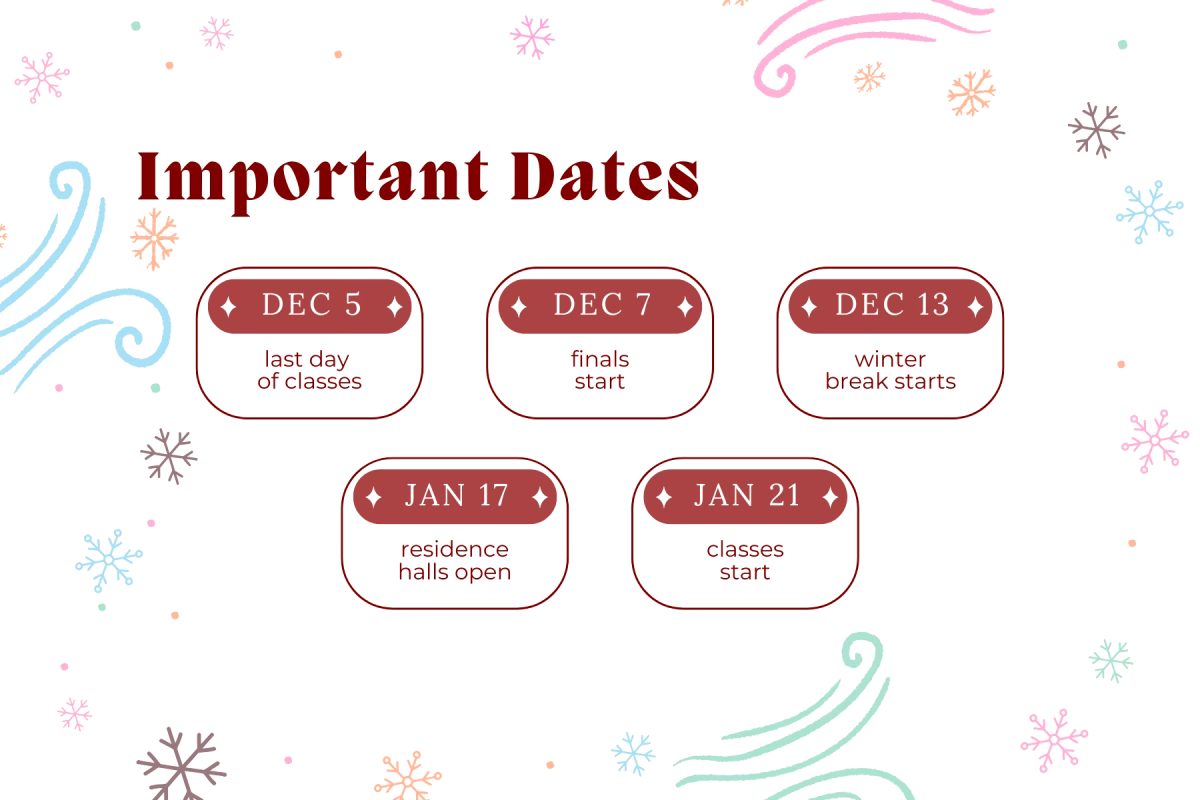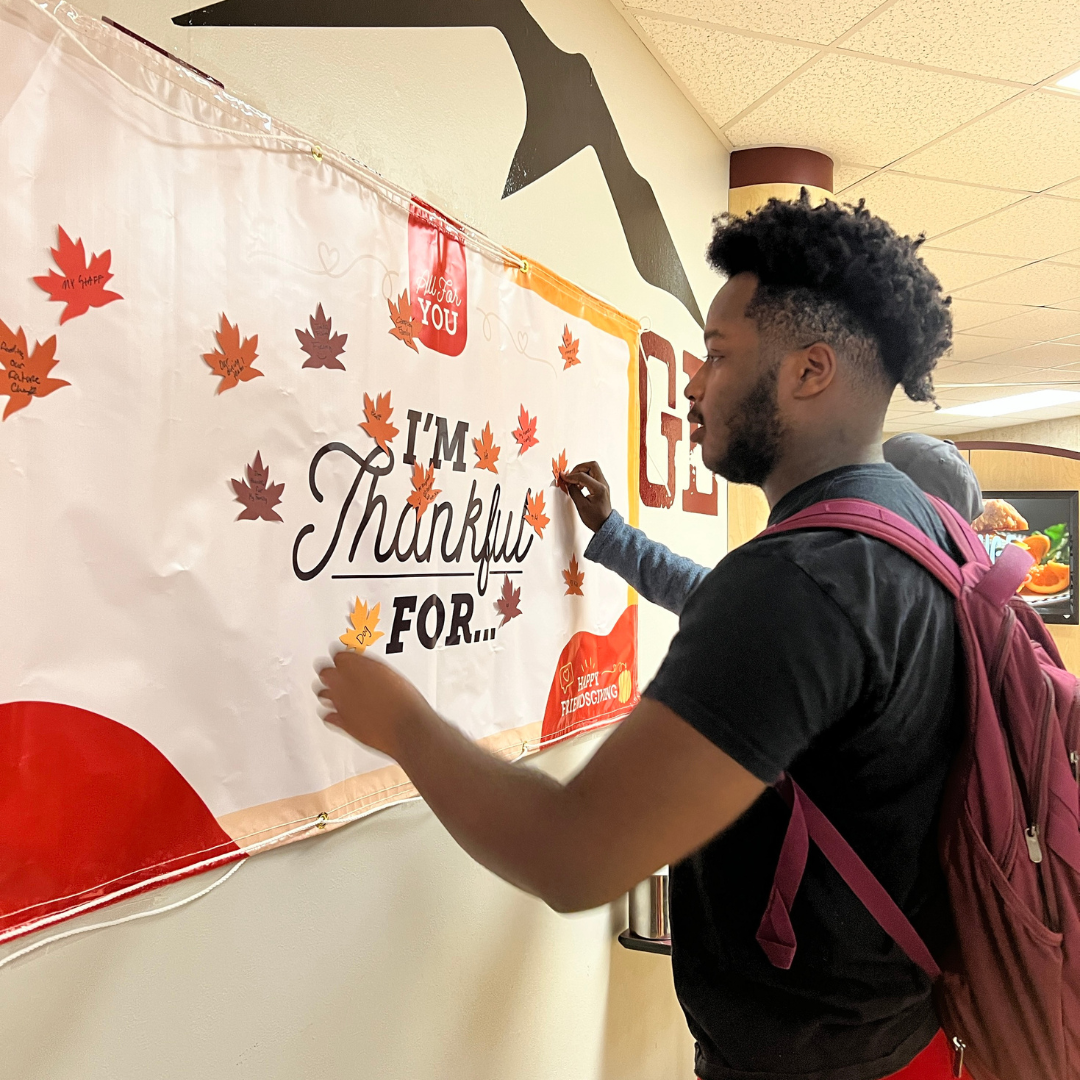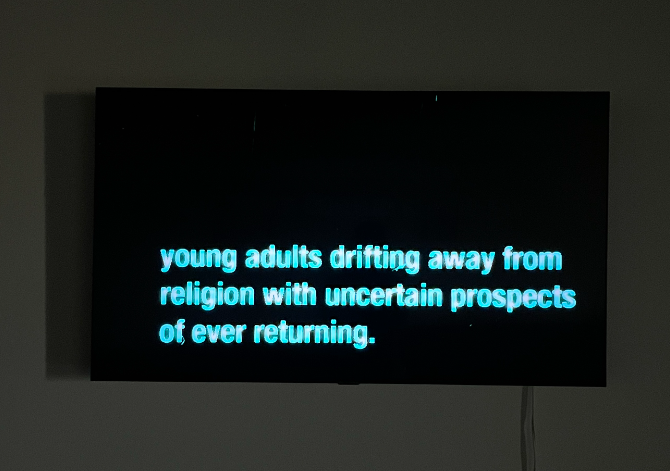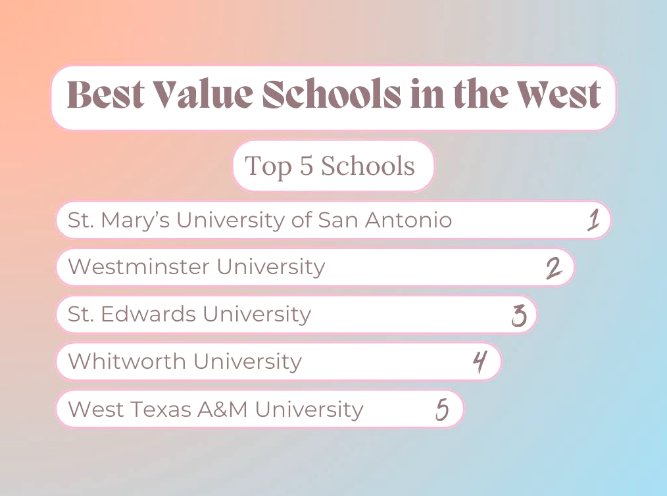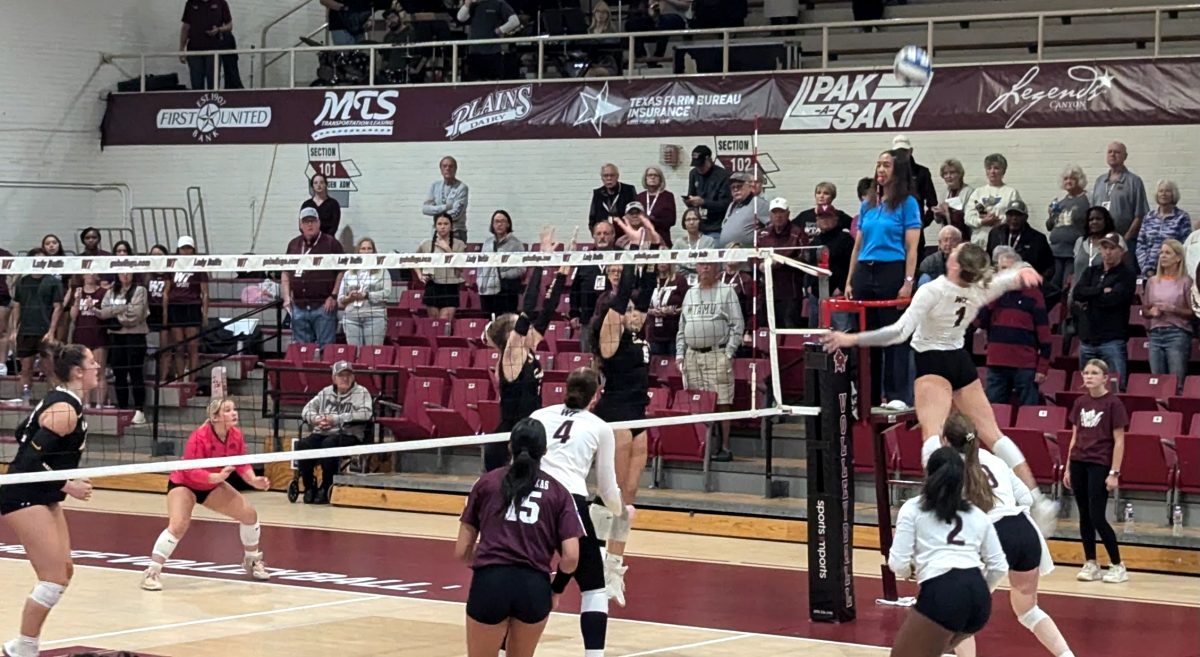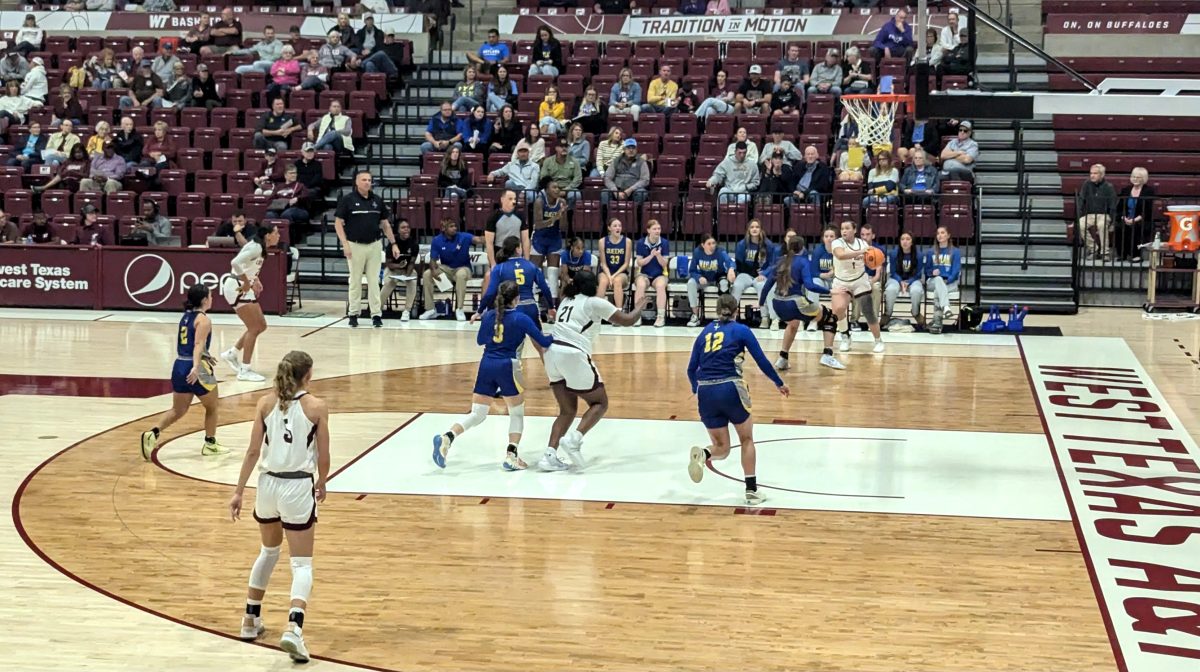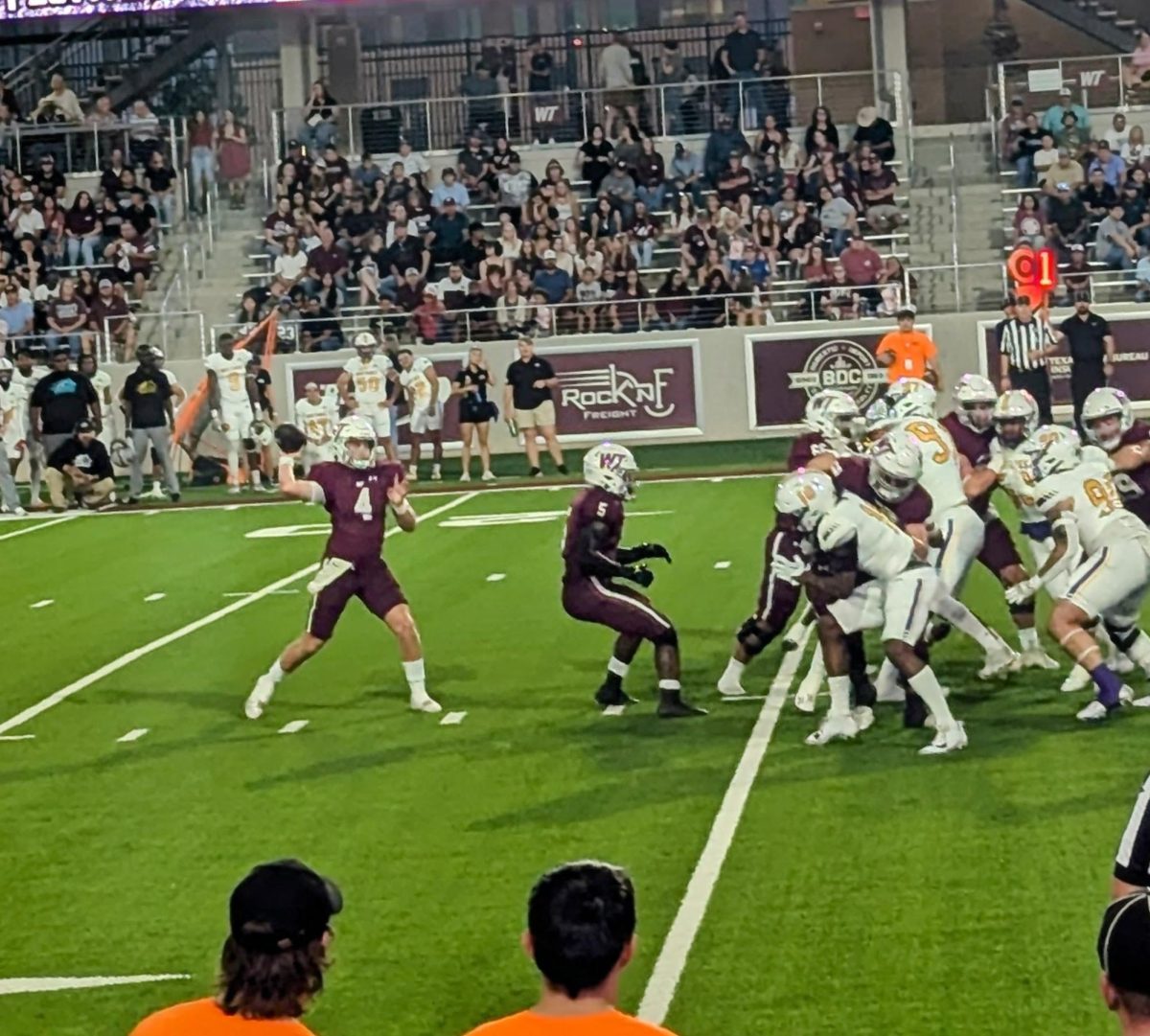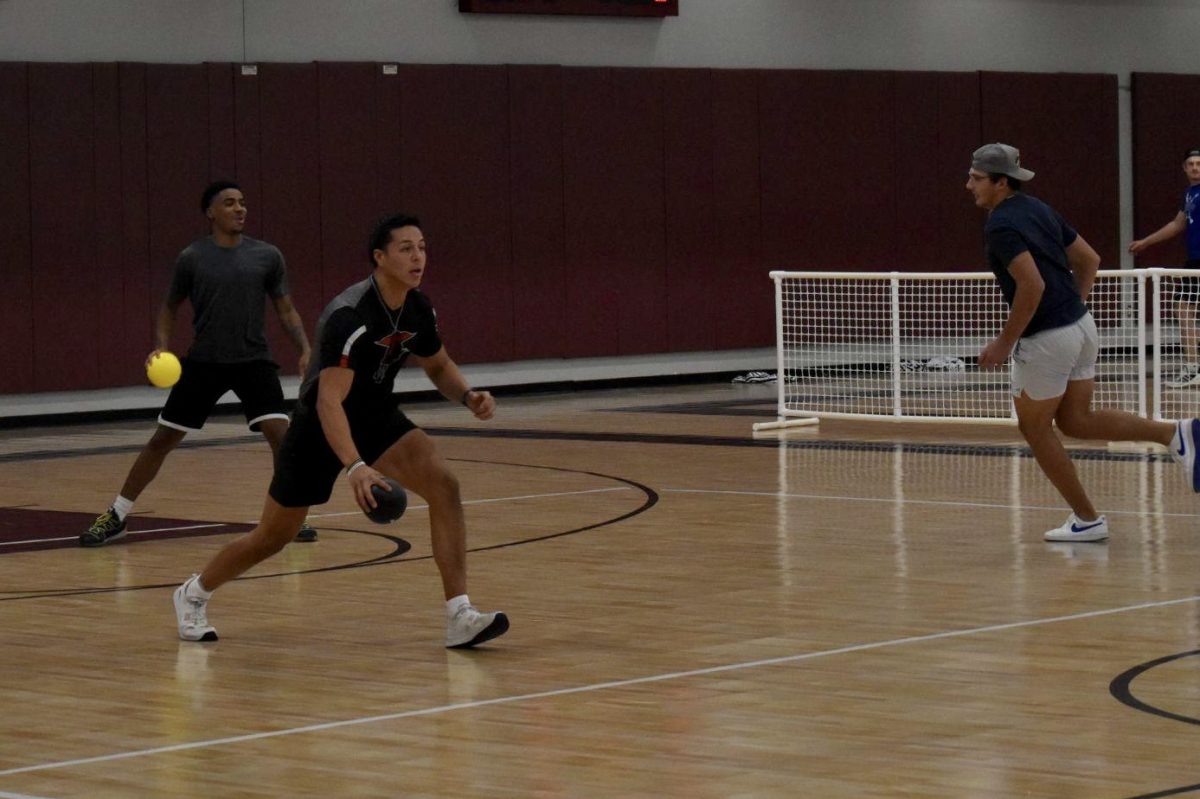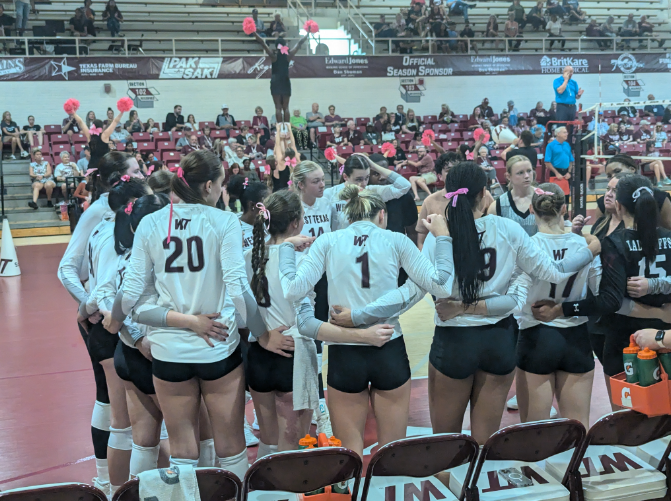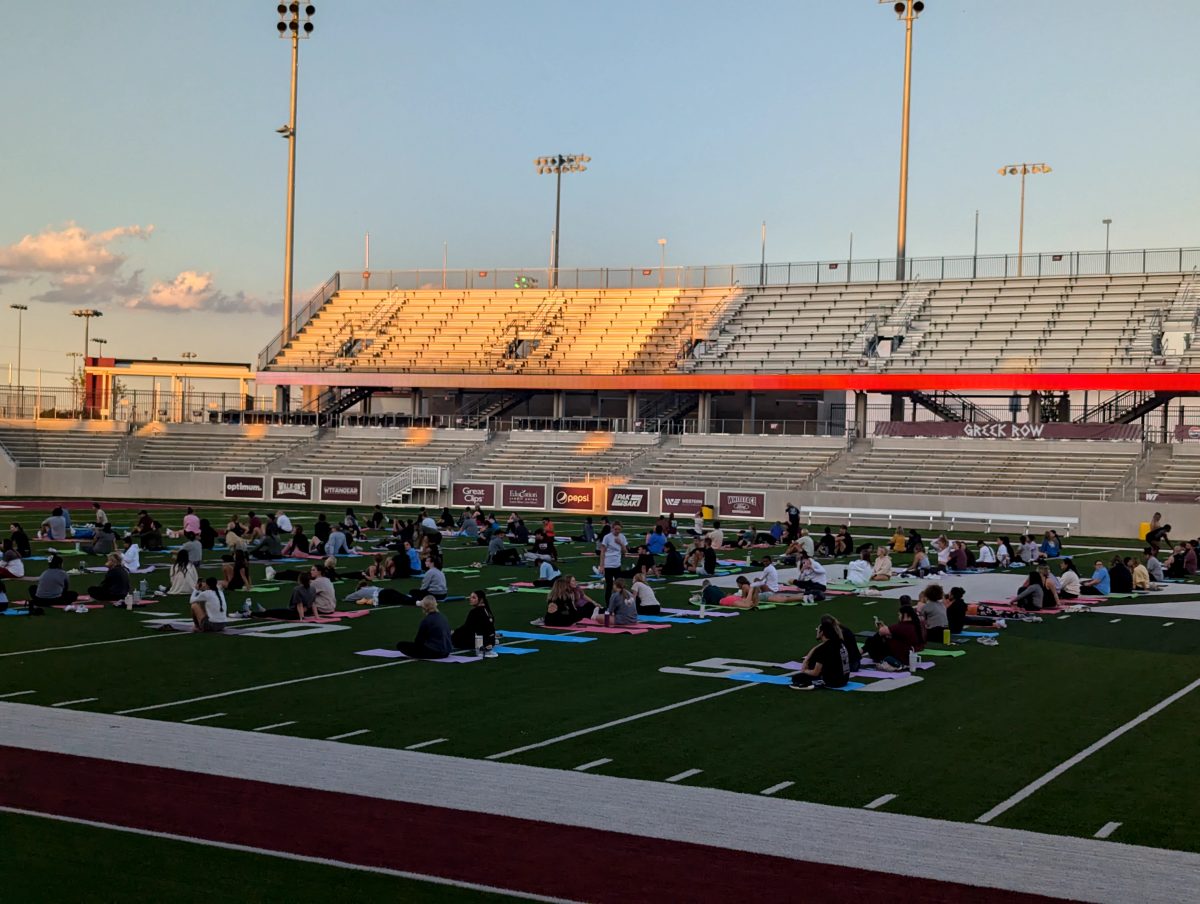
Most good things require a lot of hard work before the final masterpiece. Sports are one of those things. The event or tournament itself doesn’t just happen, the athletes and coaches put in a lot of behind the scenes work.
According to the U.S. Department of Education’s data, for Division II schools in the Lone Star Conference, $18,716,778 was used for athletically related student aid in 2011. This money goes to student athlete scholarships.
“Some people think getting an athletic scholarship is just how much talent you are born with, but at the collegiate level talent is never enough,” Dylan Doss, a sophomore Business Management major and member of WT’s cross country team, said. “You have to work at it.”
Rules for the NCAA state that coaches and staff are only allowed to direct or supervise the athletes for 20 hours a week. Earlier this year, University of Southern California baseball coach Frank Cruz was fired because he knowingly violated that limit of hours. In order to maintain scholarships, athletes have to perform on and off the field.
“How I manage school and baseball is I have individual meetings with one of my coaches every Wednesday to talk about my grades and if I need help in a class he will get me a tutor,” William Gonzalez, a senior on the WTAMU baseball team, said “We have mandatory study hall Wednesday so that helps me out with my homework that is due soon.”
According to the NCAA Manual, their goal is to initiate, stimulate and improve intercollegiate athletic programs for student athletes and to develop educational leadership, physical fitness, sports participation as a recreational pursuit and athletic excellence. Time management becomes very important as student athletes have to balance their sport with other aspects of their lives.
“For me personally it is hard,” Judy Papenfus, a sophomore Mass Communication major and member of the WT golf team, said. “Being a Christian my priorities are different from most others. I try always to seek God’s Kingdom first and then I try to balance my golf and academics. I do miss a fair amount of class due to tournaments and so I have to make a little more effort in order not to fall behind in my classes.”
To maintain eligibility, student athletes must take a minimum of 24 hours each academic year with a 1.8 cumulative GPA after earning 24 hours.
“It’s hard to get my school work done when we are on the road,” Gonzalez said. “The bus rides aren’t the best place to do homework because it’s so loud and uncomfortable, so it builds up on me and I have to cram it all in during the week.”
“I feel like I always stay behind just a little,” Doss said. “But by the end of the weekend I manage to finally catch up before another weekend on the road. Sometimes I feel like I miss out on normal student activities because we tend to be gone three out of four weekends in the spring.”



